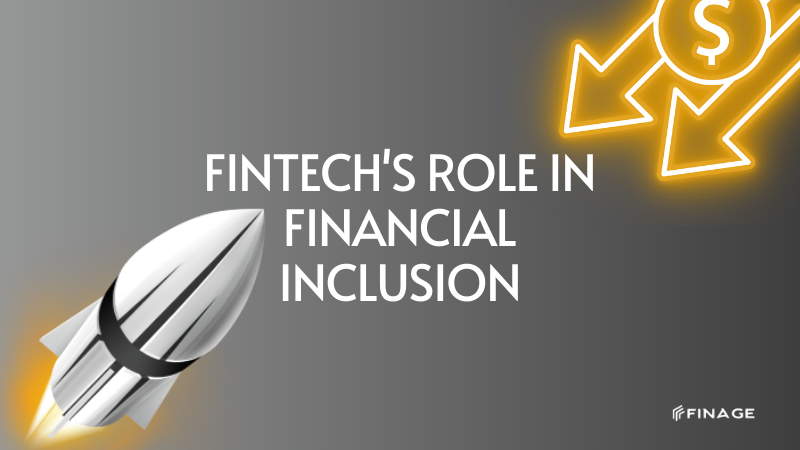Financial Fraud Detection Using AI
5 min read • February 20, 2024

Introduction
Artificial Intelligence (AI) has become a cornerstone in fortifying financial institutions' defenses against fraudulent activities. Its capacity to process vast datasets and recognize intricate patterns significantly enhances the detection and prevention of fraudulent behavior. By employing machine learning algorithms, AI systems can swiftly sift through transactions, pinpointing anomalies and suspicious activities in real time, enabling institutions to react promptly. However, the effectiveness of AI in financial fraud detection is not without its challenges. Ensuring the accuracy and reliability of AI models, addressing biases in data, and staying ahead of increasingly sophisticated fraudulent techniques are persistent hurdles faced by organizations leveraging this technology.
This blog post endeavors to explore the pivotal role of AI in the realm of financial fraud detection, elucidating its methodologies, advantages, and obstacles. It seeks to delve into the benefits of AI-driven fraud detection, such as enhanced accuracy, speed, and adaptability, while shedding light on the challenges, including the need for continuous refinement, data privacy concerns, and the evolving nature of fraudulent tactics. Moreover, the article aims to contemplate the future implications of AI in this domain, envisioning advancements that might further fortify financial systems against fraud while navigating the ethical considerations and evolving regulatory landscapes intertwined with AI utilization in the financial sector.
Table of Contents
- AI in Financial Fraud Detection: An Overview
- The Necessity for AI in Fraud Detection
- How AI Transforms Fraud Detection Efforts
- Techniques of AI in Fraud Detection
- Machine Learning and Pattern Recognition
- Predictive Analytics and Anomaly Detection
- Benefits of AI in Financial Security
- Enhanced Accuracy and Efficiency
- Real-Time Detection and Response
- Scalability of Fraud Detection Systems
- Challenges in Implementing AI for Fraud Detection
- Data Privacy and Security Concerns
- Balancing False Positives and Customer Experience
- Case Studies: AI in Action
- Examples of Successful AI Implementation
- Impact on Reducing Fraud Cases
- Future of AI in Financial Fraud Prevention
- Integration with Blockchain and Other Technologies
- Evolving AI Capabilities and Fraudster Tactics
- Conclusion
AI in Financial Fraud Detection: An Overview
The Necessity for AI in Fraud Detection
In an increasingly digital financial world, traditional fraud detection methods are often inadequate. AI offers advanced capabilities to meet the growing complexity of financial fraud.
How AI Transforms Fraud Detection Efforts
AI algorithms can process vast amounts of transaction data in real-time, identifying fraudulent patterns that would be impossible for humans to detect.
Techniques of AI in Fraud Detection
Machine Learning and Pattern Recognition
Machine learning algorithms excel at identifying complex patterns and anomalies in financial transactions that could indicate fraud.
Predictive Analytics and Anomaly Detection
Predictive analytics can forecast potential fraudulent activities based on historical data, while anomaly detection highlights transactions that deviate from the norm.
Benefits of AI in Financial Security
Enhanced Accuracy and Efficiency
AI increases the accuracy and efficiency of fraud detection, reducing the rate of false positives and negatives.
Real-Time Detection and Response
With AI, financial institutions can detect and respond to fraudulent activities as they occur, significantly reducing the impact.
Scalability of Fraud Detection Systems
AI systems can easily scale to handle large volumes of transactions, which is essential for large financial institutions.
Challenges in Implementing AI for Fraud Detection
Data Privacy and Security Concerns
Implementing AI requires handling sensitive financial data, raising concerns about data privacy and security.
Balancing False Positives and Customer Experience
Reducing false positives without compromising the customer experience remains a challenge in AI-based fraud detection.
Case Studies: AI in Action
Examples of Successful AI Implementation
Several financial institutions have successfully implemented AI in fraud detection, significantly reducing fraudulent activities and losses.
Impact on Reducing Fraud Cases
Case studies demonstrate how AI can effectively reduce the incidence and impact of financial fraud.
Future of AI in Financial Fraud Prevention
Integration with Blockchain and Other Technologies
The integration of AI with technologies like blockchain can further enhance fraud detection capabilities.
Evolving AI Capabilities and Fraudster Tactics
As AI technology evolves, so do the tactics of fraudsters, necessitating continual advancement in AI-based fraud detection methods.
Conclusion
Artificial Intelligence (AI) has emerged as a pivotal tool in fortifying financial institutions against the looming threat of fraudulent activities. Its ability to swiftly analyze vast volumes of data, detect patterns, and discern anomalies elevates the efficacy of fraud detection systems. AI-powered algorithms continuously learn from new data, refining their accuracy in identifying suspicious behavior and potential fraud in financial transactions. Moreover, the real-time response capabilities of AI equip institutions with the agility to respond promptly to evolving fraud tactics, significantly reducing the window of vulnerability. Despite some existing challenges, such as adversarial attacks or ethical considerations, ongoing advancements in AI technology are poised to revolutionize and reinforce the landscape of financial security and fraud prevention.
The evolving landscape of AI-driven fraud detection systems holds promise for further strengthening the defense mechanisms of financial institutions. As AI algorithms become more sophisticated, they exhibit greater accuracy in distinguishing legitimate transactions from fraudulent ones, minimizing false positives and negatives. Additionally, AI's adaptability allows for the integration of diverse data sources and the creation of more robust risk models, enhancing the overall resilience of fraud detection frameworks. The ability to analyze behavioral patterns, transactional data, and even unstructured data sources in real time empowers financial institutions to stay ahead of emerging threats, proactively mitigating risks associated with financial fraud.
Moving forward, the continuous evolution of AI technology is poised to bring about a paradigm shift in financial security strategies. The ongoing research and development in AI-driven fraud detection aim to overcome existing limitations, such as the interpretability of AI decisions and the potential for biased outcomes. Collaborations between AI experts, financial institutions, and regulatory bodies are essential to establish frameworks that not only harness the full potential of AI for fraud prevention but also address ethical concerns and ensure compliance with evolving regulations. Ultimately, the integration of AI technologies will be instrumental in fortifying financial institutions against sophisticated fraud schemes, enhancing overall security, and safeguarding the interests of both businesses and consumers.
You can get your Real-Time and Historical Market Data with a free API key.
Build with us today!
Claim Your Free API Key Today
Access stock, forex and crypto market data with a free API key—no credit card required.

Stay Informed, Stay Ahead
Finage Blog: Data-Driven Insights & Ideas
Discover company news, announcements, updates, guides and more


